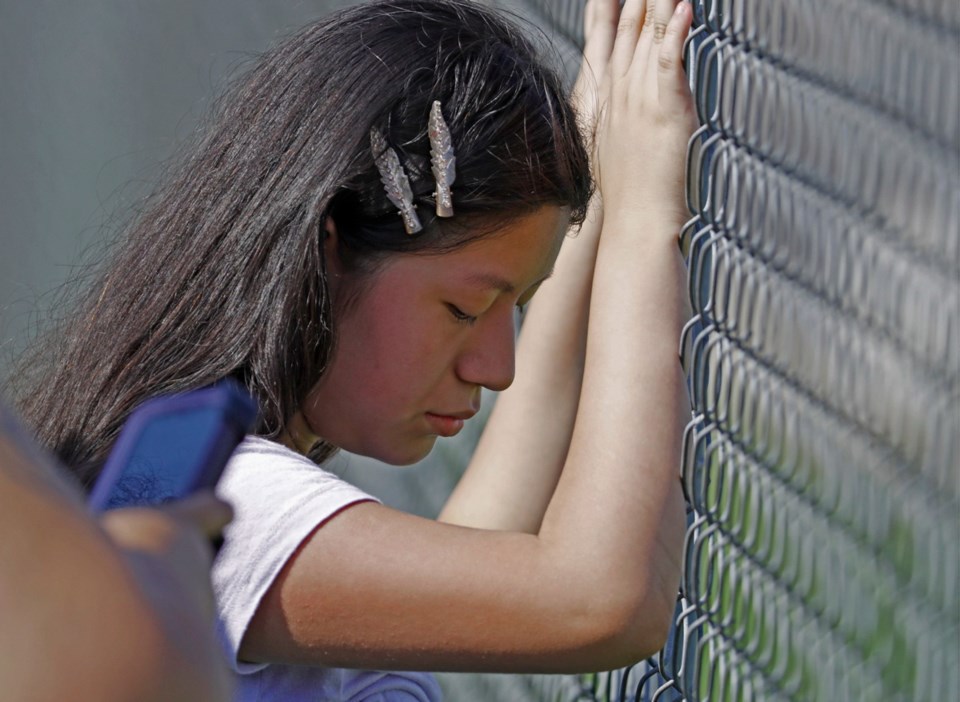So here’s the question, and it is a genuinely non-political question that even now troubles some Canadian educators: In a world of information that did not exist a generation ago, a world where now issues such as sexism, racism, homophobia, housing, poverty, the environment and the politics of climate-driven immigration dominate public debate, how much longer can public education avoid including a balanced, fact-based examination of such global issues as part of its curriculum?
We would be underestimating the current generation of 15- to 18-year-olds if we thought for a moment that these issues are not increasingly part of their lives now — unavoidable concerns that are shaping the world they will inherit.
But public education has always avoided delving into areas involving politics and religion, and so it should have — until now.
History, politics and citizenship classes have always restricted themselves to lessons about the mechanics of political structures, how the justice system works and, sometimes, what role social class and mobility play in all that.
History teaches classes about what happened, but with only a kind of “good guys vs. bad guys” nod at the root causes, the real reasons things happened the way they did.
Easy right/wrong stuff — Nazis, for example, were bad guys and the western powers, Britain, the U.S. and their allies were the good guys.
That “take” on the history of the mid-20th century was bolstered by references to original sources such as the one widely attributed to Auschwitz victim Anne Frank’s diary during her family’s time hiding from the Gestapo: “Terrible things are happening outside. At any time of night and day, poor helpless people are being dragged out of their homes. … Families are torn apart; men, women and children are separated. Children come home from school to find that their parents have disappeared.”
But now, when our kids turn on the 24/7 news, they learn that in the U.S., after an Aug. 7 Immigration and Customs Enforcement raid in Mississippi, young children were left to wander in the streets after their parents had been arrested and whisked away.
So, how to begin to help today’s kids think about these issues logically, non-politically and based on evident fact?
That’s the challenge for today’s teachers, and perhaps public education in France has hit upon an approach that may help.
Every year in France, about 650,000 students take the most anticipated secondary school end-of-year exam: philosophy, the study of logic and orderly thought.
The annual mandatory philosophy exam is the test that kicks off each year’s series of end-of-year exams students need to pass in order to graduate from French secondary schools and move on.
The much-feared “philo” exam, as most French students call it, stands out not just because it starts the week-long round of testing, but also because it’s the longest.
Every student in his or her last year of “lycée” is asked to respond to just one philosophical question.
Examples from previous years include: “Can a scientific truth be dangerous?” and “Is it one’s own responsibility to find happiness?”
The study of philosophy in France has a fundamental role in secondary education.
French educators regard “philo” as vital to build a basis of culture and reasoning in philosophy, with its main objective being to develop a capacity for personal reflection.
This “search for personal reflection” is one of the aims of the French educational system, according to French national education inspector Mark Sherringham.
The study of philosophy has been mandatory in French high schools since 1808, a tradition inherited from the philosophers of the “Siècle des Lumières,” or Age of Enlightenment.
The curriculum aims at producing “enlightened citizens” capable of intelligent criticism.
“The study of philosophy looks at notions that everyone can understand, such as happiness, justice and work,” says Simon Perrier, head of an association of French philosophy teachers. “The aim is to teach students to reflect on what they learn every day at home and in school. They learn how to approach issues thoughtfully by being introduced to philosophical texts.”
This approach gives French students a unique commitment to the discipline of how to think logically, according to Pierre-Henri Travoillot, head of the philosophy department at the Sorbonne University in Paris.
“French philosophy is actually very accessible,” he said. “Our philosophers are often writers, such as Jean-Paul Sartre.”
The result, he says, is that many ordinary French people develop a love for intellectual and literary pursuits that continues later on in life.
The French approach, which might assist Canadian educators, is summed up by a famous quote by Rabelais, French Renaissance writer and humanist: “Science sans conscience n’est que ruine de l’âme” (Science without conscience only ruins the soul).
Now there’s an interesting thought, n’est-ce pas?
Geoff Johnson is a former superintendent of schools.



